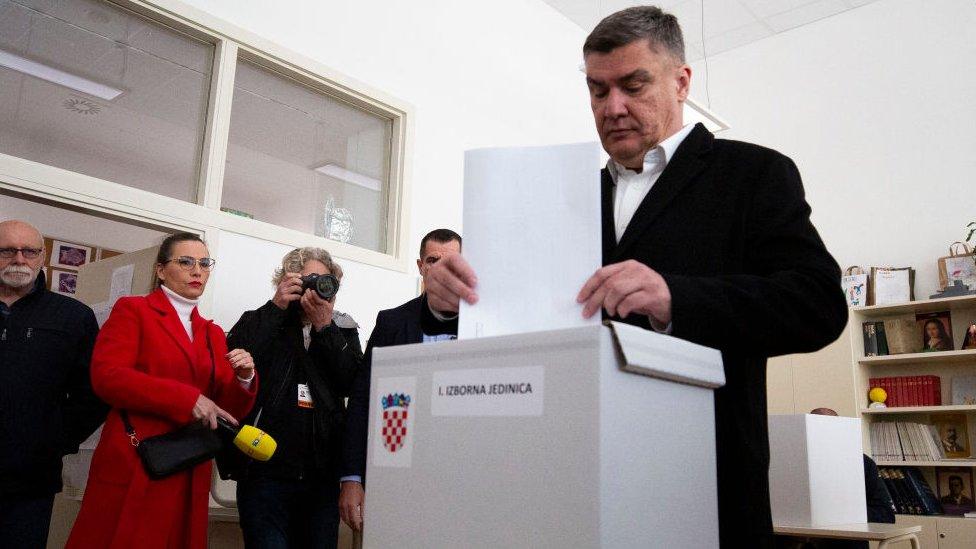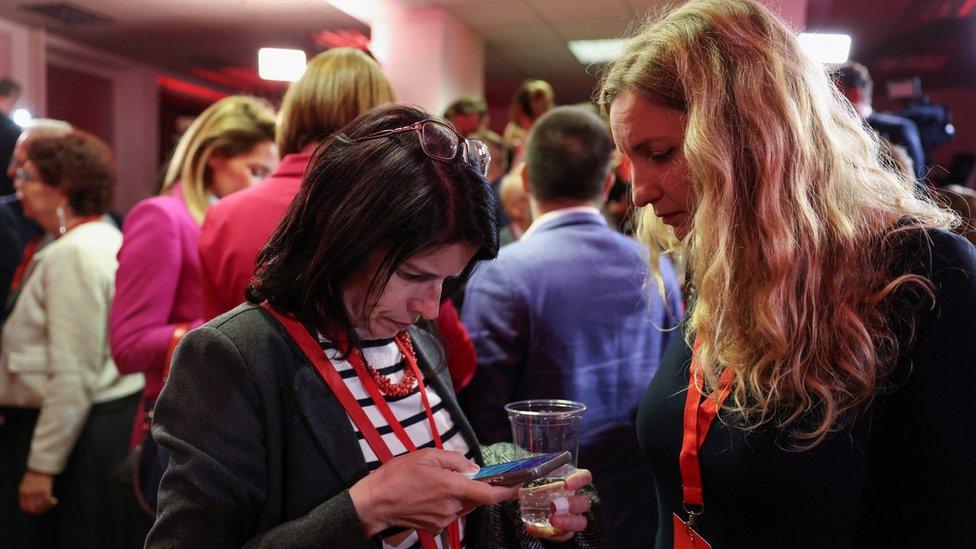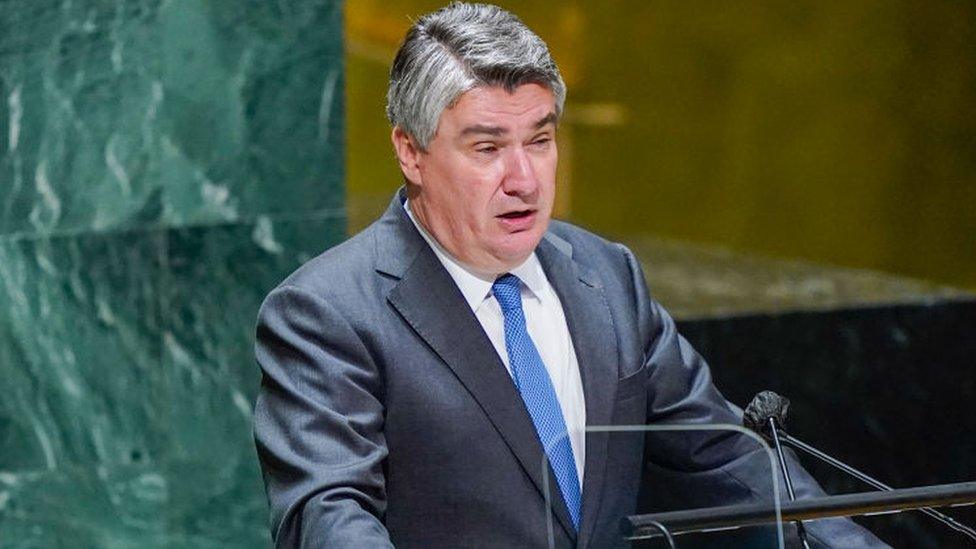Croatia braces for horse-trading after tight election
- Published

Zoran Milanovic casting his vote
Prime Minster Andrej Plenkovic and President Zoran Milanovic were the headline acts ahead of the vote.
But it looks like the supporting players may have stolen the show in Croatia's parliamentary elections - with a messy post-election period likely to follow.
Preliminary results suggest that parties ranging from the nationalist right to the green left have gained a significant number of seats in parliament. Neither the prime minister's governing Croatian Democratic Union (HDZ) nor the president's favoured Social Democratic Party (SDP) have claimed enough seats to form a government.
It means that Croatians are bracing themselves for weeks of political horse-trading, to see if a governing coalition can be formed. Or, failing that, a viable minority government.
The HDZ clearly - and unsurprisingly, given its unmatched resources and organisation - remains the largest party. But its numbers are significantly down on the last election in 2020 - and well short of the 76 required for a majority.
Meanwhile, the SDP will be disappointed that its controversial backing from President Milanovic - who was banned by the Constitutional Court from standing as a candidate for prime minister - has not brought more seats. Its total is little changed from 2020.
As a party whose support covers a wide range of voters ranging from the centre-right to right-wing nationalists, the HDZ would usually look for the support of smaller parties on the same part of the political spectrum.
But both the right-wing nationalist Homeland Movement and the socially and fiscally conservative Most (Bridge) are playing hard to get.
Most's leader, Bozo Petrov, did not mince his words when asked about the possibility of joining an HDZ-led government. His party has previously been part of such coalitions. But not this time.
"The HDZ should be sent into opposition," said Mr Petrov.
Further to the right, a successful election for the populist Homeland Movement - bringing home a projected 13 seats - has cast its leader, Ivan Penava, as a possible kingmaker. And he already seems to be relishing the role.
"The key is that we will talk to everyone," he said.
The problem for the SDP is that negotiating with the Homeland Movement will not necessarily help them to push past the 76-seat barrier. The two parties are not exactly natural political bedfellows. And such a partnership might alienate other potential allies.
The green-left Mozemo ("We Can") party insists that it is not interested in supporting any government which includes the Homeland Movement. But the results make it hard to see a "centre-to-left" coalition emerging which would ensure Mozemo's participation or, at the very least, support.
One thing is certain: Zoran Milanovic remains Croatia's president. And the choice of prime ministerial candidate is his prerogative.
The headline act may yet have time for an encore.

Members of the SDP checking election results
- Published15 April 2024
